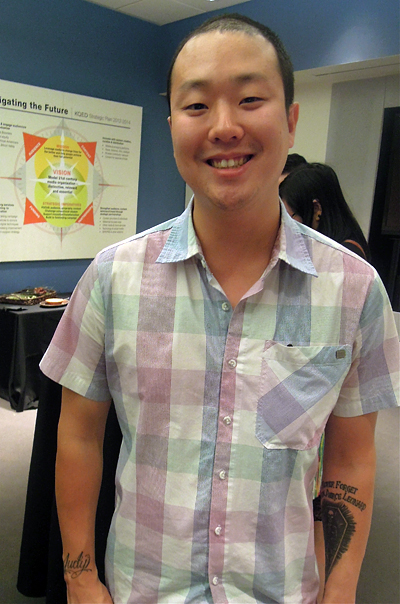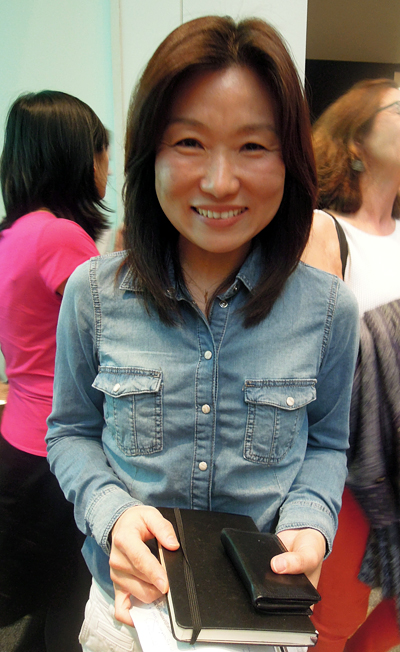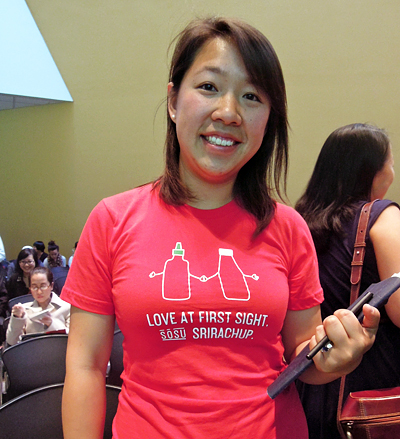
What does a T-shirt depicting a bottle of Sriracha holding hands with a bottle of Ketchup have to do with a launch party for a new PBS film? It’s an apt image for a documentary soon to be made by filmmaker Grace Lee, with the working title “Asian Chops,” that aims to discover the changing landscape of Asian America as seen through a food lens.
Last Saturday, 150 Asian food fans attended KQED’s kick-off party and brainstorming session for the co-production of the Center for Asian American Media (CAAM) and KQED. After enjoying the crowd-pleasing array of Chinese, Vietnamese, Balinese and Filipino dishes prepared by panelist Tim Lyum of Attic Restaurant, the gathering heard brief remarks from Grace Lee about her new project which has not yet begun filming and is scheduled to air on PBS Prime Time in June 2014.
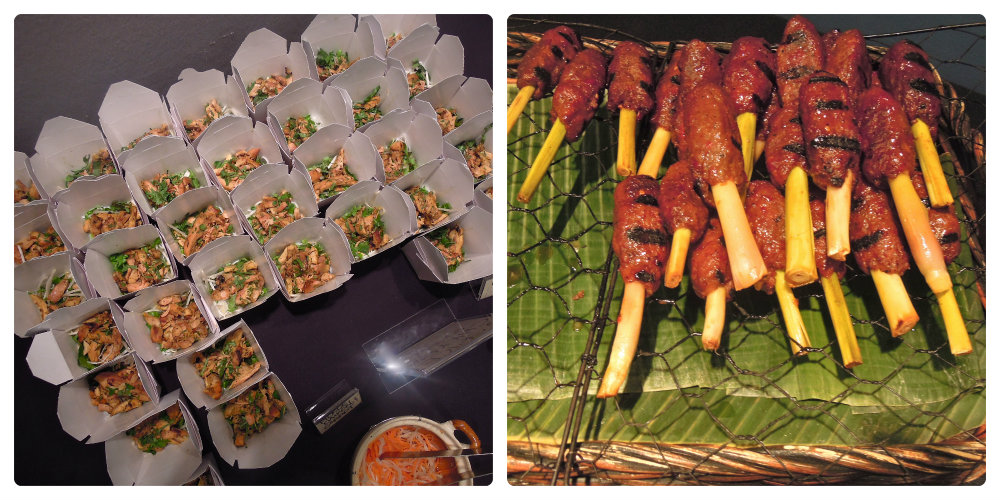
In an interview before Saturday’s event, Lee told Bay Area Bites that her films often use an unconventional storytelling approach.
“Exploring Asian America through the conduit of food will allow us to examine bigger themes.” Lee hopes to dig deep into communities across the country to find unexpected stories, characters and juxtapositions. She is actively soliciting ideas for people and subjects to include. “We want this to be interactive, because we are trying to do something new. There’s no recipe for this. It’s kind of like Asian America. How do you define that anyway? Part of excitement of the project is using the process to really explore the topic itself.”
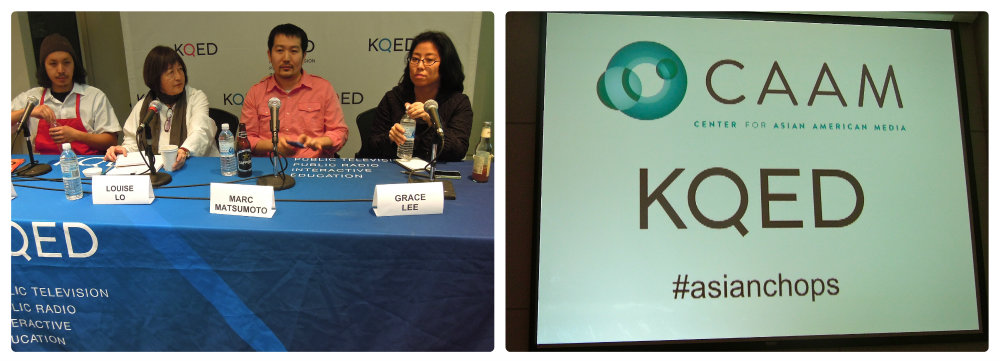
After remarks from Lee, KQED producer Louise Lo, PBS food blogger Mark Matsumoto and Chef Lyum, moderator Leslie Sbrocco (of KQED’s Check, Please! Bay Area), invited members of the audience to come to the microphone and share their stories. Some people honored departed members of the Asian American community who had given generously of their time, food and wisdom. Many younger speakers typified a new energy and dedication.
Lisa Murphy, 27, owner of Sosu Sauces and the person wearing the ketchup/sriracha T-shirt, has started her own business making spicy sauces. She told the crowd how she immigrated from Shanghai to the U.S. when she was nine, speaking only Mandarin.
“Learning English in fifth grade was the hardest thing, but everyday after school, when my aunt cooked traditional Chinese food for dinner, I watched and learned. It was a way for me to build confidence. Food was also a way to communicate with my Irish-American step-father who only spoke English.”
Murphy says she did “typical Asian American things,” like attend UC Berkeley and work in banking and finance, but realized that she usually spent her days talking about food with friends. When she told her “very traditional mother” she planned to quit her well-paying high-tech job and do something she loved, her mother was shocked, “A food business?” her mother demanded, “Why are you are going backward?” Murphy explains that as Asians immigrate to the U.S., their first jobs are commonly cooking or doing deliveries for a restaurant. Now that her expanded line of spicy sauces is carried in stores like Bi-Rite Market and Rainbow Grocery, however, she reports that her mother is more accepting.
